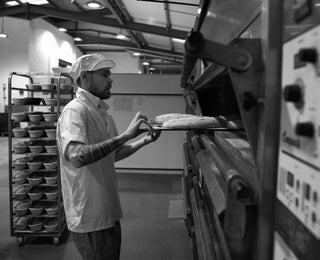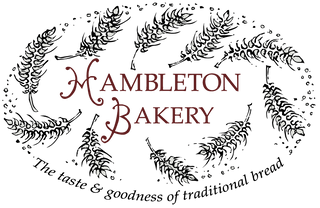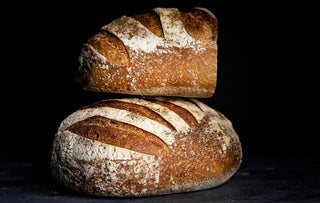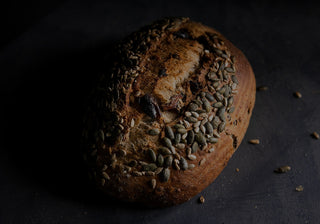
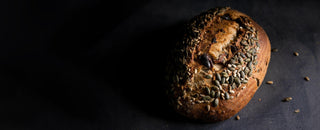
WE BELIEVE
Our bread is less fattening…
Over time we have realised that our product addresses at least three health issues which afflict our communities to a greater and greater extent.
Modern bread is rapidly digested in the small intestine producing Glucose that is either used up or stored as fat.
Gram for gram, slowly fermented bread contains much less starch than industrially produced bread because, during the long fermentation, yeasts convert carbohydrate into carbon dioxide gas (the holes in the
bread). A good indicator of the lower starch content of our bread is the longer time required to toast, reflecting less sugars in the bread.
Dr Xan Van Tulleken (BBC June 6th ‘The Truth about Carbs’) highlighted the benefits of bread containing starch which resists digestion in the small intestine and is digested only in the large intestine (‘resistant starch’). Loaves such as our Rye Bread (which Dr Van Tulleken used in the programme to illustrate his point) wholemeal, spelt and Rye sourdough all contain much more resistant starch than industrial sliced white. This means that 100 grams of the above loaves not only contains much less starch than 100grams of industrial sliced
white but also contains a larger proportion of resistant starch.
For those wishing to control weight, traditional bread can be very helpful, combining more satisfying bulk with lower starch.
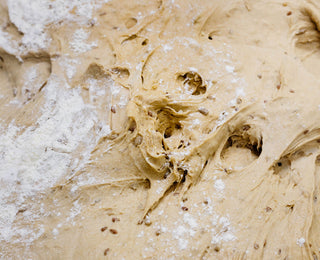
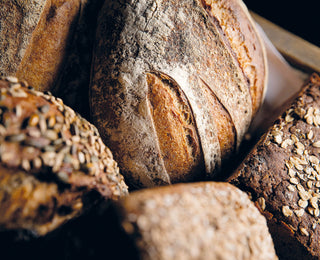
…more digestible…
GLUTEN: THE SCAPEGOAT FOR BAD BREADMAKING
Coeliac disease is a serious reaction to gliadin, a gluten forming protein present in wheat and (in smaller quantities) in Rye, barley and oats. It is generally treated by complete avoidance of gluten. We do not. claim that any of our bread is suitable for Coeliacs but it is clear that a large number of our clients who cannot eat ‘factory bread’ can eat our bread.
Coeliac disease has increased enormously since the introduction of the latest breadmaking processes in the 1960s. There is widespread concern that aspects of modern breadmaking, most likely the accelerated fermentation process, miss out an important transformative element in traditional long fermentations.
For those that suffer from milder symptoms such as ‘bloating or discomfort’ from eating industrial bread (but who are not Coeliacs) generally choose our Sourdough, Rye, wholemeal and spelt loaves. For them the solution need not be ‘Gluten Free’ but traditional bread and long fermentation that has always been used to transform gluten into something that humans can easily digest.
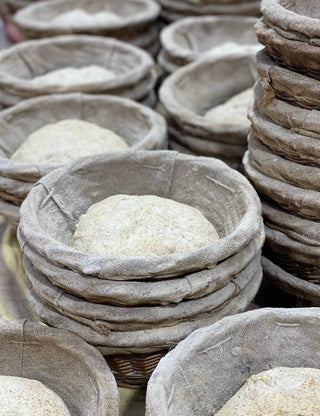
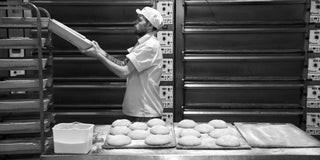
…and better for Type Two Diabetics
Dr Xan Van Tulleken (‘The Truth About Carbs’ BBC TV, June 6th 2018) highlighted a number of studies where type two diabetics had been cured or improved by diet change. Resistant starch from wholegrain bread played an important role in these diets.
Diabetics are well aware of the benefits of foods with a low glycaemic index which maintain stable blood glucose levels over many hours. Sourdough and wholemeal bread have a low glycaemic index and processed white bread the highest.
IN ADDITION: VITAMINS AND MINERALS
Stoneground flour and traditional breadmaking processes maximise vitamins and mineral content in bread. In addition, lactobacilli present in long fermentations improve the ‘availability’ of important minerals.
Modern roller mills remove the wheatgerm from the flour resulting in significant depletion of vitamins and minerals such as magnesium and zinc.

